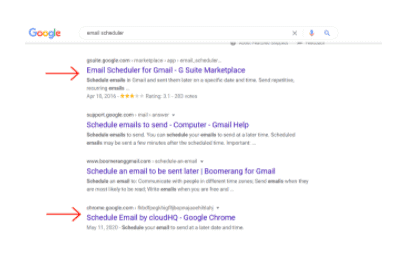Building a new product is a lot of work. You meticulously research the features that your application needs, spend countless hours building and testing it, and launch it after months only to realize that marketing your product is perhaps more difficult than building it.
If marketing is not really your forte, or you are someone who wants a quick win, the ideal way to launch a product is to build it for a platform.
So what do we really mean by this?
Think of all the technology that you use to run your business – your iPhone, GMail, Shopify Store, Slack, WordPress blog – the reason they are so useful is because each of these applications are ‘platforms’ – there are thousands of applications built on them, and this makes them ideal for every possible scenario.
Want to automate your sales outreach? You can install an extension like Reply.io’s LinkedIn Email Finder and Outreach on the Google Chrome store and get going.
Want to get on a video call with your team on Slack? You can make use of an app like LifeSize that offers this feature.
Building a standalone app is great – it gives you the flexibility and independence to target a large target group. However, if you are just starting out, building it for a platform can offer several advantages. Here are a few reasons to consider this option.
SEO
This is not the most important reason why you should build your app for a platform – but this is often overlooked. Large platforms like Shopify, the Google Chrome Store or WordPress are also very high authority websites. What this means is that you have a better chance at ranking for your target keywords with these platform-specific apps than you have for your own website.
Take the example of the keyword “email scheduler”. This search results page on Google has two listings in the top five that are of platform-built apps.

It’s easier to get your app page on these platforms ranking on Google than it is to rank your website. The turnaround is much quicker.
Captive Audience
If you are a standalone app, you are up against every other competitor in your space. However, when you are building an application for a specific platform, the competition you face is much smaller.
Sure, your target audience is also now much smaller. However, this is a captive group of users who are more likely to sign up for your service than if you were a standalone product. Not just that, platforms like Shopify or the iOS store are popular because they have a large ecosystem of applications to enhance your experience with.
Consequently, you are likely to see a large chunk of inbound app users on these platforms as compared to a standalone application – where outbound marketing is essential for success.
Take the example of employee recognition application, Meeds – this application sits on top of existing workspace platforms like eXo Platform – and this gives Meeds an instant exposure to the thousands of users already using the platform. This is something that could not have been achieved as a standalone product.
Motivated Users
A lot of online applications today offer a free trial or free version of their apps to users. While this helps with conversions, you also attract a lot of tire kickers who utilize the free version of the app without ever upgrading.
This is understandable from a user’s perspective because there is no way to know how good your app is for their specific needs until they download and use it.
Platform users are however a lot more motivated. This is because they are mostly users who already pay a subscription fee for using the platform. They are not here to abuse the free version. Also, most platforms and app stores let users rate and review apps – the users who install your app are thus a lot more aware of your pros and cons and are thus less likely to bail.
Exposure
This is by far the most important reason why you should build your application on an existing platform. Even if you do have a standalone application already, it makes sense to integrate your app with popular platforms that your target users already make use of.
This is the reason why so many web conferencing tools today offer native integration with third party project management and collaboration tools – these are applications with millions of users and offering native integration can give your brand excellent exposure.
This way, your app is seen by the thousands of users who may now be more inclined to use your app against a competitor app that is not yet supported on their platform.
For example, a Shopify user who needs email marketing services may be inclined to sign up with Automizy simply because the integration is already available – all that the user needs to do now is plug and play.
Of course, popular platforms like WordPress or Shopify attract a lot of your competitors as well – this results in a situation where you are now forced to compete against all the regular players independently on various platforms like Google Search, App Store, the Shopify Store, and so on.
However, given that a growing number of users are now using native search functions on these platforms instead of hitting Google for their queries, this is an investment that is well worth the cost.
Do you have an application that is built for a platform? What other benefits (or disadvantages) have you experienced with this strategy? Share your thoughts and ideas in the comments.

